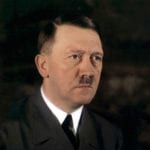 History
History  History
History  Health
Health 10 Everyday Activities That Secretly Alter Consciousness
 History
History Top 10 Historical Disasters Caused by Someone Calling in Sick
 Animals
Animals 10 New Shark Secrets That Recently Dropped
 Movies and TV
Movies and TV 10 Forgotten Realities of Early Live Television Broadcasts
 Technology
Technology 10 Stopgap Technologies That Became Industry Standards
 Weird Stuff
Weird Stuff 10 Wild Facts About Taxidermy That You Probably Didn’t Know
 Travel
Travel 10 Beautiful Travel Destinations (That Will Kill You)
 Miscellaneous
Miscellaneous 10 Modern Marriage Rituals Born from Corporate Branding
 Weird Stuff
Weird Stuff Ten Bizarre Visions of 2026 from Fiction
 History
History 10 “Modern” Problems with Surprising Historical Analogs
 Health
Health 10 Everyday Activities That Secretly Alter Consciousness
 History
History Top 10 Historical Disasters Caused by Someone Calling in Sick
Who's Behind Listverse?

Jamie Frater
Head Editor
Jamie founded Listverse due to an insatiable desire to share fascinating, obscure, and bizarre facts. He has been a guest speaker on numerous national radio and television stations and is a five time published author.
More About Us Animals
Animals 10 New Shark Secrets That Recently Dropped
 Movies and TV
Movies and TV 10 Forgotten Realities of Early Live Television Broadcasts
 Technology
Technology 10 Stopgap Technologies That Became Industry Standards
 Weird Stuff
Weird Stuff 10 Wild Facts About Taxidermy That You Probably Didn’t Know
 Travel
Travel 10 Beautiful Travel Destinations (That Will Kill You)
 Miscellaneous
Miscellaneous 10 Modern Marriage Rituals Born from Corporate Branding
 Weird Stuff
Weird Stuff Ten Bizarre Visions of 2026 from Fiction
Top 10 Most Famous People
What does it mean to be famous? Jacinda Ardern, made it to TIME magazine’s 100 Most Influential People of 2018, and all for the single act of donning a Muslim veil to signal her virtue after an Australian massacred 51 people in a Mosque in New Zealand, where Ardern is Prime Minister.
SEE ALSO: Top 10 Most Famous People . . . Who Weren’t Real
But she didn’t make the Google top ten most searched for people of 2018. Cardi B did—and managed the same in 2019. She generates millions of monthly searches. But compared to the following entries, Miss B doesn’t come close in terms of number of books written about her. She hasn’t had enough time.
Here are the 10 most famous (or infamous), well known people in human history, ranked according to Google searches and approximate number of books written about them. If you travel to Bouvet Island, the most remote land mass in the whole world, how likely is the first person you meet going to know of the following 10 people?
10 Sir Isaac Newton, 1642–1727
Google searches: 1 million+ per month
Number of books written about this person: c. 400,000
The discoverer of the calculus just edged out Albert Einstein for the 10th spot. Google searches alone would have netted Einstein a place on the list, at 6.1 million searches per month, but many more books have been written about Newton. Einstein is on track to break his record in far fewer than 286 years, but even then, Einstein would have had no foundation on which to base his theories of Relativity had Newton not existed. Ninety-five percent of all classical mechanics is built on Isaac Newton alone.
He generalized the binomial theorem, invented the reflecting telescope, coined the word “gravity” and gave the Roman Catholic Church‘s self-important hegemony over geocentrism its final knockout blow. Copernicus and Galileo had to face inquisitions, but no one ever attempted to reproach Newton’s Principia Mathematica. Perhaps arguing against someone else’s observations is inane enough, but arguing against math itself was in Newton’s case, impossible. He proved the former two’s theories on heliocentrism, and explained why and how every single macroscopic object in the entire Universe moves as it does. He did all this by himself and still had time to investigate elements and principles of optics, and invent the pet door, although he was too busy ever to have sex. He died a virgin at 84.
Read more about the life of one of history’s most famous scientists in Isaac Newton: Inventor, Scientist, and Teacher at Amazon.com!
9
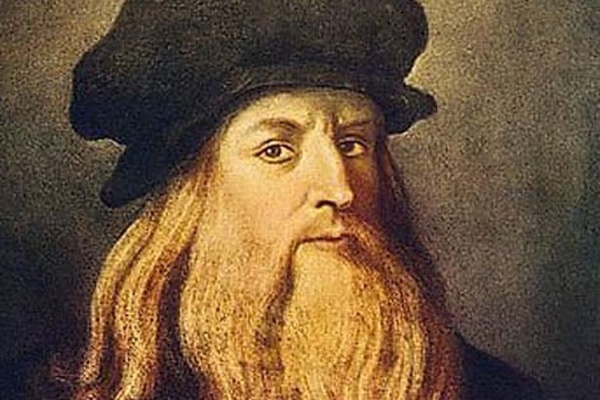
Google searches: 4 million+ per month
Number of books: c. 600,000
Google searches can be inaccurate, which is why they are only half the criteria for judgment. If you search “leonardo,” you’ll get a lot of pages about ninja turtles and people who drowned on the Titanic. But if you type da Vinci’s full name, you’ll quickly see why he’s world renowned. He could do anything. He has possibly the greatest resume in history. Imagine if you could put the following on yours and then make good on all of it at an interview:
Engineer, inventor, anatomist, architect, mathematician, geologist, musician, cartographer, botanist, writer, sculptor. You name it, da Vinci was into it. He invented the sniper rifle, although it was not rifled: he just bolted one of his refracting telescopes onto a wheellock musket and shot people from 1,000 yards. He probably invented the wheellock musket, too. He invented the parachute about 300 years before Louis-Sebastien Lenormand claimed the honor in the late 1700s. Da Vinci’s design is not known to have been tested until 2000. It worked perfectly. he invented the hang glider about 400 years before it really took off. His design was based on a bird’s wings. He gave the helicopter quite the college try, but couldn’t figure out a sufficiently powerful method for getting it airborne. He was the first to understand the concept of spinning helical blades tilted at just the right angle pulling an object up into the air.
He invented the tank, which was propelled via men turning a crankshaft inside and fired cannon in all directions. He invented the mitrailleuse about 400 years before the French. It is a precursor to what we consider a machine gun, with multiple barrels firing all at once. Da Vinci invented the pivoting scissors by bolting two knives together for shearing cloth.
His sculptures are not as well known as those of Michelangelo, but da Vinci envisioned a gigantic horse sculpted out of poured bronze, which was impossible to make with the technology of his day (the sculpture would have broken apart under its own weight). But it was completed in 1998 and there are three models of it around the world, one in Milan, Italy, one in Grand Rapids, Michigan, USA, and one based in Florence, Italy that is shipped around the world for display. They are 24 feet high and the largest horse statues ever constructed.
Da Vinci was also a pretty good painter.
8
Google searches: 7.4 million+ per month
Number of books: c. 1 million
The man with the lion’s share of the percentage of votes for greatest writer in English or any language in human history is sure to be the source for quite a few words and phrases now common in his native language. A good 50 percent of common English phrases come from the King James Bible, and possibly 30 percent of the rest come from the Bard. If you’ve ever said, “It’s all Greek to me;” “food for the gods;” “all that glitters is not gold;” “a sorry sight;” “dead as a doornail;” “come what may;” “with one fell swoop;” or “all’s well that ends well;” then “by Jove” you’re quoting Willie Shakes.
Egil Aarvik, of the Committee for the Nobel Prize, once said that Shakespeare would have been the only person in history to win more than one prize for his literature. There is no rule against this, and had he lived into the 20th Century, his plays would have certainly deserved one, but his sonnets alone are worth the bodies of work for which other laureates have been honored. What is the most famous quote in all of English literature? Probably “to be or not to be.”
What’s most impressive about his fame is that we know very little at all about Shakespeare himself, the man and his life. He only had a grammar school education and worked as an actor before becoming a playwright. What makes Shakespeare so great is his seamless blend of the finest poetry, profound, multifaceted philosophy, and a lively wit. Do it one time and you’ll win quite a few awards and be thought a great writer. Shakespeare did it 37 times, and that doesn’t account for his 154 sonnets, the bulk of the English repertory. Hamlet and King Lear are universally acclaimed masterpieces, benchmarks against which all other drama, before and after, is judged.
7
Google searches: 6.1 million+ per month
Number of books: c. 175,000
We have covered Hitler many times on Listverse, but rarely from a somewhat historiometric perspective. We all know that he remains the primary cause of WWII. He instigated it to suit two profound desires: to become the most powerful person on Earth, preferably in history, if not to rule the whole world; and, for his own enjoyment, to cause as much pain as possible against all those he deemed responsible for Germany’s humiliating and miserable defeat in WWI, and its squalid poverty between the wars. Germany was forced to pay every other nation’s wartime expenses after the First World War, and this utterly destroyed Germany’s economy. The Deutschmark became so worthless that children burned millions of them at once to keep warm in the streets.
The Jews, meanwhile, largely kept their money in gold and jewelry, safe in international banks. Gold and diamonds do not depreciate, and Hitler seized on his own hatred of the Jews’ prosperity in the Interbellum to sway as many people to his side as possible. Add to this a supreme mastery of oratory, and history is about to suffer a severe catastrophe. WWII resulted in more deaths than any other war, up to 71 million, and Hitler is the most to blame. He knew and was not ashamed. He was despised and happy about it.
He is routinely listed alongside the following names on lists of the most evil people, real or fictitious, in history, especially those of public polls: “the Devil;” “Satan;” “Lucifer;” “Stalin.” The current United States President (whoever it is) is usually next, although recently elected popes can unseat him. It can be argued that Hitler shaped the 20th Century more than any other person, except possibly Einstein, and Hitler is the only person of the 20th or 21st Century on this list. Quite an impressive ranking to have been dead for only 68 years.
Discover more about Hitler and the evil experiments performed under his watch in Doctors From Hell: The Horrific Account of Nazi Experiments on Humans at Amazon.com!
6
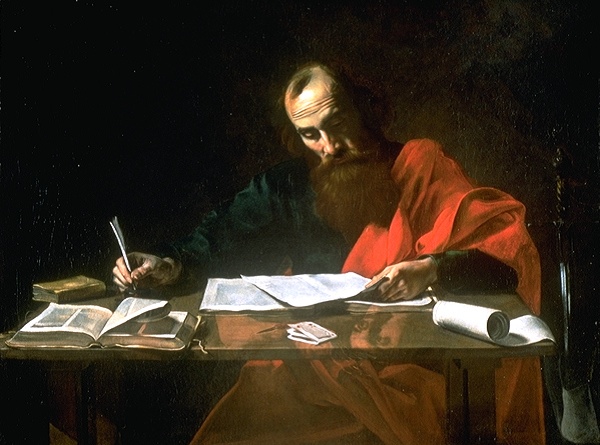
Google searches: 3.35 million+ per month
Number of books: c. 7 million
Paul is quite possibly more responsible for the dissemination of Christianity, its ideals, theology, and principles, than anyone else. He is venerated in all branches, as a saint in many, or at least as a profoundly respected teacher, preacher, and the chief Christian apologist. And he did all this via 13 letters to various churches and people throughout Asia Minor.
He was the first person to write anything that was later canonized into what we call the New Testament. He probably wrote his first epistle, to the churches in Galatia, in about A.D. 50, give or take 5 years. Mark wrote his Gospel 5 to 10 years later. Paul’s theological thesis throughout his 13 or so Epistles is a more detailed statement of Jesus’s philosophy of ethics and salvation given in the Gospels. Paul’s central point is that all you have to do is believe that Jesus is the Son of God, Savior of the world, rose again from the dead and ascended into Heaven, and you will not die. Your transition may be painful, but you’ll go to Heaven.
If that’s all you have to do, as most people have accepted his teaching, it’s obvious why Paul’s brand of evangelism caught on so quickly, firmly, and widely. He is far more immediately known than any of the Twelve Apostles, only rivaled, through the fame of the popes, by Peter. By his death, he permanently cemented his legacy for the ages: he was arrested in Rome for inciting political discord and beheaded south of the city center, at what is now San Paolo alle Tre Fontane, or the basilica of Saint Paul at the Three Fountains.
SEE ALSO: 10 Surprising Indicators Of Genius
5

Google searches: 4 million+ per month
Number of books: c. 7 million
You might be surprised to know that most of the people who Google Buddha are not Buddhists. In the Western Hemisphere and throughout Europe, Buddhism is not as well understood as the three major monotheisms. A few clarifications:
Gautama was probably born in Kapilavastu or Lumbini, Nepal in about 563 B.C., about 24 years after Babylon sacked Jerusalem. Gautama was a mortal man who attained Nirvana, or spiritual awakening and peace of mind, at the age of 35, while seated under a Pipal tree, now referred to as the Bodhi tree, in Bodh Gaya, India. The tree growing there now was planted in 288 B.C. from a seed of the original. Buddha sat in meditation for 49 days until he attained the knowledge of how to thoroughly end suffering for all people on Earth. The people do have to follow his teaching in order to free themselves from the various griefs of life.
This is called the Noble Eightfold Path: right view, right intention, right concentration, right speech, right action, right livelihood, right effort, and right mindfulness. If you hold to all these, you will be able to put away all worries and you will be truly happy and unaffected by anything. Buddha rejected the notion of any literature being infallible, and argued that truth must be experienced to be known.
Gautama, the Supreme Buddha, is worshipped in Hinduism as well, as one of the ten representations of Vishnu, who is the god above all others. Baha’i also venerates Gautama as a mortal manifestation of God, who descended to teach mankind to love one another and how to be happy. Gautama is traditionally said to have died in about 411 B.C., at the age of 150 or so. Modern scholars place his death at about 483, at the age of 80.
4

Google searches: 2.7 million+ per month
Number of books: c. 8 million
Moses is revered but not worshipped by all three major monotheisms, Judaism, Christianity, and Islam, as well as Baha’i. He is regarded as the greatest prophet of the Old Testament; the liberator of the Jewish people from slavery in Egypt; their leader into Canaan, the Promised Land; and their lawgiver, who relayed God’s 10 Commandments to the Jews, and founded much of Jewish life and tradition.
The Pharaoh’s daughter, usually named Bithiah, found the infant Moses in a basket floating in the Nile and took him as her own son. She named him after the Hebrew verb “to draw,” since she drew him out of the river. No information is given on Moses’s life, except that he was raised in the Egyptian noble household, and that one day he saw an Egyptian beating a Hebrew slave and saved the Hebrew by killing the Egyptian. He then hid in the wilderness, and met Jethro, who was a follower of the precursor faith to Islam.
Jethro gave him Zipporah, his daughter, to be his wife, and Moses met God for the first time, who showed himself in the form of a burning bush. Moses then bravely returned to Egypt and, with God’s help, forced the Pharaoh to let his people go. Moses was about 80 years old when this Exodus began. They wandered the desert wilds for 40 more years, received God’s law through Moses, built an ark into which the law was placed, and finally reached a land flowing with milk and honey, which God promised them. Moses, however, had acted arrogantly when he struck the stone from which water sprang for the Israelites, and so God refused to allow him entrance into Canaan. Moses died at 120 years and God buried him in the Moab valley opposite Mount Nebo. There is a memorial to him there today.
3
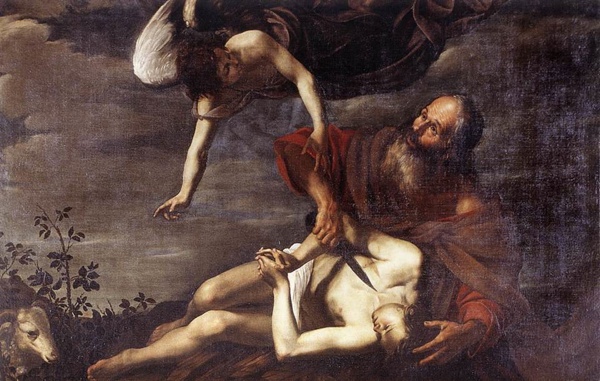
Google searches: 9.1 million+ per month
Number of books: c. 2 million
The google searches for Abraham the Old Testament prophet are not as reliable as those for Moses or Adolf Hitler, since quite a few famous historical or fictitious people have been named Abraham. The top three most famous are Abraham of the Bible, Abraham Lincoln, and Abraham van Helsing. But if you were to go, say, the Philippines, and ask the first passerby who Abraham Lincoln was, they might actually not know. Among well over 99 percent of the world’s cultures and societies, you will not have that problem when asking about the prophet named Abraham.
He is revered by all three monotheisms, as well as Baha’i, as a prophet, and one of the first, if not the first, persons of the Middle East to believe in a single God. Judaism, Christianity, and Islam are referred to as “the Abrahamic religions.” In the Bible, God makes a covenant with Abraham because of his devout, unswerving faith in God, while everyone around him follows the newest god to take everyone’s fancy. This covenant is marked by circumcision. God then tests the conviction of Abraham’s faith in him by demanding that he kill his firstborn son, Isaac, to glorify God. Abraham does not hesitate, but takes Isaac up to the top of a mountain and is about to kill him when an angel arrives and tells him to stop. God is immensely impressed and blesses Abraham with fruitfulness: he will be the father of many nations.
Today, Abraham is precisely that. Muslims believe that it was not Isaac, but Ishmael, his other son, whom God told Abraham to sacrifice, and Muslims believe that Ishmael’s lineage led to the next entry. The site of the near sacrifice is traditionally deemed to be where the Dome of the Rock sits today. This shrine is sacred to all three Abrahamic religions.
2
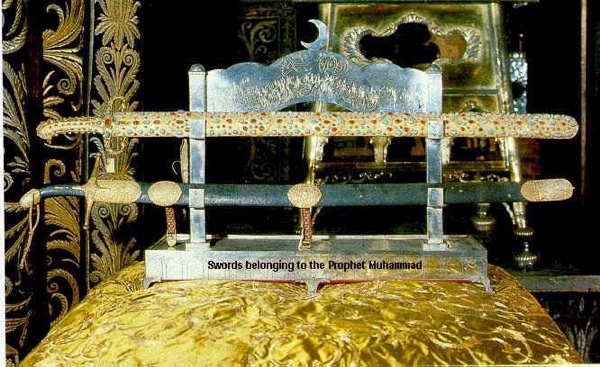
Google searches: 13.6 million+ per month
Number of books: incalculable
To non-Muslims, Muhammad founded Islam. To Muslims, he did not found anything, because the religion, called Islam, was already there, and had to be restored to its proper maintenance. Muslims believe that Muhammad restored the religion and unified it under the philosophies God imparted to him in revelations he wrote down. These became the Q’uran. Islam is the Arabic noun for “a surrendering,” or “a yielding,” in this case to the will of Allah. Muhammad was born about A.D. 570 in Makkah (Mecca), Saudi Arabia. He had 13 wives, which is acceptable and encouraged in Muslim cultures.
Muhammad’s status as second most famous person in history is especially remarkable given that it is illegal according to Islamic law to depict Muhammad in any way (which is why you don’t see him in the above picture). That law dictates that Muhammad is the last prophet to have been sent by God to teach mankind the ways of peace and righteousness, and that he is too holy to be viewed by our sinful eyes. For this reason, very few films have been made about him. The most notable was The Message (1977), the premiere of which incited suicide bombings throughout the Middle East and protests around the world, until everyone realized that Muhammad is not actually depicted; rather, the camera’s point of view represents him: the film is seen through his eyes.
If you’d like to know, there is nothing in the Q’uran that states, “To kill Americans, both civil and military, is the duty of every Muslim who is able.” That nonsense was concocted by various Middle Eastern leaders over the years, mostly in the last half of the 20th Century and beyond. These leaders know full well that knowledge is power and have done their level best to hoard literacy education from the public. The literacy rate in Yemen is currently about 70 percent, which is terrible compared to “more civilized” countries like the USA, England, Germany, and Japan. And because the Middle Eastern Muslim public largely cannot read the Q’uran, the governments disseminate anti-American, anti-Western lies to indoctrinate them into hatred.
Muhammad died on 8 June A.D. 632 in Medina, Saudi Arabia, having united the whole of the Middle East under a single God, whose name is Allah. There are many spellings of Muhammad, including Mohammed, Moammar, Mehmet, Mahomet, and others. Because of him, Muhammad is the most common given name in the world, with about 200 million carriers. “Muhammad” means “praised.”
If you anticipated Muhammad, you probably anticipated the next entry.
1
Google searches: 24.9 million+ per month
Number of books: incalculable
There’s really no need to explain just what the four Gospels say Jesus did to become famous, but in the interest of fairness, here are the claims: he was born to a virgin, died at about the age of 33 sometime around the year A.D. 33 (plus or minus 5), the most famous victim of crucifixion, and rose from the dead on his own power 3 days later, ascended into Heaven and now sits at the right hand of God the Father as a manifestation of that God’s only offspring. You can look up the various miracles attributed to him. There are just over 7 billion people on Earth as of this list, and just about one-third precisely, 33.32%, of them, worship Jesus as “the Christ of God.” We may fairly say that these 2.33 billion people know very well who he was/is, and specifics about his life.
It is also indisputable that those followers of Islam and Judaism both know perfectly well who he was. There are some 1.75 billion Muslims on Earth today, or 25% of the global population, and since Jesus is venerated as a very important prophet of their religion, to whom they say Muhammad spoke when he sprang to Heaven on a horse, Jesus is certainly not unknown to them. There are about 1.3 billion atheists the world over, and at least 98% of those people certainly know all about Jesus. It is highly possible that the only people on Earth who have no idea who he was, or anything about him, are those people who belong to the 100 or so primitive, uncontacted tribes remaining around the world, the most well known across the Internet of which are the Envira people of the Brazilian-Peruvian border area, deep in the Amazon Jungle. They have been photographed from helicopter. It is doubtful they know of Jesus, or Muhammad, or anyone else on this list, as they are 100% isolated from the rest of the world’s societies.
Google claims that 129,864,880 books have been written and bound throughout human history and which still survive in book form in some library in the world. That is not as high a number as you might have expected, but we are speaking of different volumes, so only one of the 25 million copies of the Bible printed every single year counts toward this total. Out of these c. 130 million books, it is estimated that 40% are about Jesus. This percentage includes books about Christianity in general, whether evangelical (or anti-evangelical) or historical. Richard Dawkins’s The God Delusion focuses on God in general, but pays special attention to Christianity, as any atheist apology must, since Christianity is the most popular religion, and thus Dawkins’s book counts as 1 book about Jesus, as it counts as 1 book about Muhammad. So there are some 52 million different books circulating the world right now that are in some way concerned with Jesus, the man who may have lived, who may have walked on water, and risen from the dead. The Gospel of John, one of the 52 million books written about Jesus, ends with this passage: “Jesus did many other things as well. If every one of them were written down, I suppose that even the whole world would not have room for the books that would be written.”
READ MORE: These folks just missed the cut; could they break into this top 10? Confucius, Napoleon Bonaparte, Albert Einstein, Abraham Lincoln, Michael Jackson, Elvis Presley, Jack the Ripper, Josef Stalin, Mao Zedong, and more.
FlameHorse is a writer for Listverse, and considers this list his most difficult to research and compose to date.
